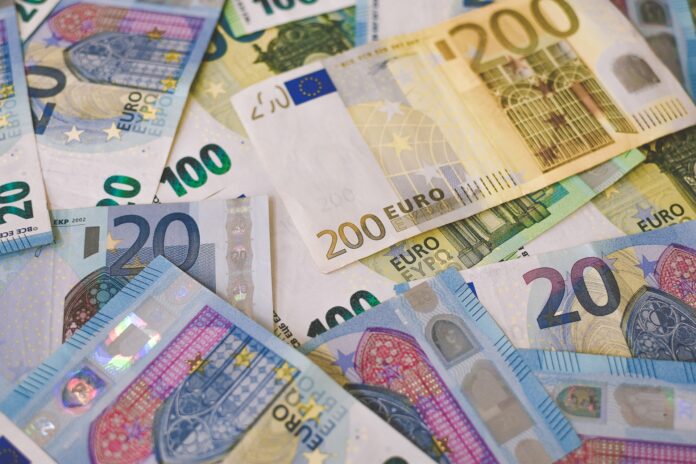
The European currency is strengthening today, hitting its highest level in two weeks against the dollar. The euro was supported by the European Central Bank (ECB), which is not looking to cut interest rates anytime soon. The US central bank (Fed), on the other hand, indicated on Wednesday that it will cut interest rates next year.
Dollar Weakens as ECB and Fed Maintain Rates
At around 17:35 GMT, the dollar index, which tracks the dollar’s performance against a basket of six leading global currencies, was down one percent at 101.83 points. The euro strengthened 1.2 percent against the dollar to $1.1004. The dollar weakened 0.7 percent against the yen to JPY141.49. The euro rose 0.5 percent against the yen to JPY155.66.
Central Banks’ Impact on Euro-Dollar Dynamics
The ECB’s Governing Council left its key interest rate unchanged at 4.50 percent for the second straight day, as expected. It also predicted that inflation in the eurozone will fall faster than expected and slightly downgraded the outlook for the eurozone economy for this year and next. However, it reiterated that it would keep interest rates at sufficiently high levels for as long as needed.
The Fed on Wednesday left its benchmark interest rate unchanged as expected at a range of 5.25 percent to 5.50 percent, the highest level in 22 years. The Monetary Board left interest rates unchanged for the third straight session. At the same time, the bank signaled that its monetary tightening is over and will reduce interest costs next year. In total, 17 of 19 Fed officials expect the key interest rate to be lower than now by the end of 2024. The median of the projections shows that rates will fall by three-quarters of a percentage point, which could mean three quarter-point cuts.
Currency Markets Unsettled
The dollar briefly erased losses after statistics showed that US retail sales unexpectedly rose in November. This shows that the pre-Christmas shopping season got underway quickly, which should keep the economy on a path of moderate growth.
The dollar also weakened against the Swiss franc and the Norwegian krone. The Swiss central bank left its main interest rate at 1.75 percent today as expected and said inflationary pressures eased slightly in the past quarter. The Norwegian central bank then raised interest rates by a quarter percentage point, adding that interest rates are likely to stay at that level for some time.
The British pound also strengthened today as the Bank of England left its main interest rate unchanged, adding that interest rates must remain high for longer, Reuters wrote.
Source: čtk
















